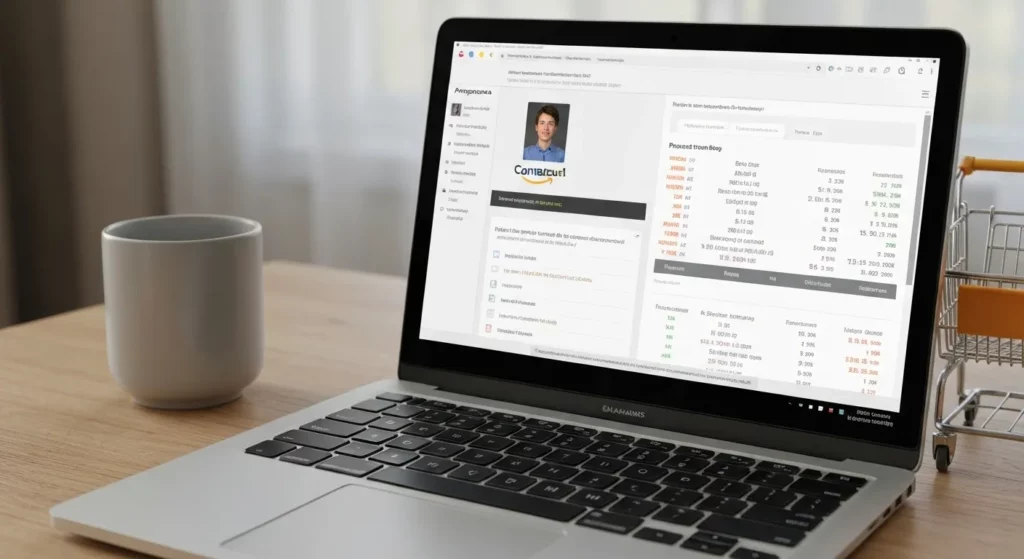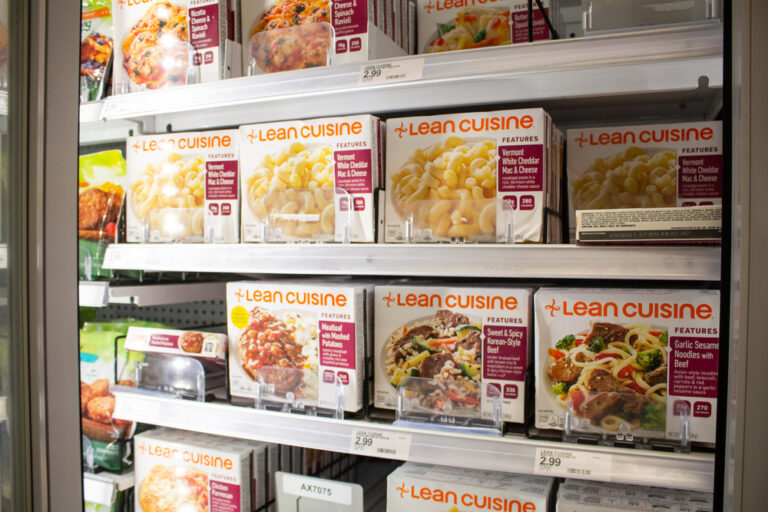These are the most common ways you are wasting money!
Most of us spend more money than we want, and because of this, we try to limit our spending as much as possible. This constant feeling of financial pressure can be exhausting, leaving us wondering where all our hard-earned cash goes at the end of the month. But do you know that there are some subtle ways you are wasting money every day, and you might not be aware of them? These are not the big, obvious purchases, but rather the small, almost invisible leaks in your budget.
Yes, there are some things we constantly do that drain our wallets, and they are so normal for us that they have become habits, and now it is hard to notice them. It’s a classic case of “death by a thousand cuts,” where tiny, seemingly insignificant expenses add up to a substantial amount over time. Hopefully, this is why this article is here, to help you identify these habits and stop them as soon as possible. Recognizing these patterns is the crucial first step toward taking back control of your finances.
It is time to know more about the ways you are wasting money and put an end to them immediately. By shining a light on these common money drains, you can empower yourself to make smarter choices and build a more secure financial foundation. Think of it as a financial health check-up. Read on and find out all about it. Your future self will thank you for this!

1. Subscriptions
How many subscriptions do you have? Take a moment to actually count them. Netflix, Hulu, Disney+, Apple Music, Spotify, your favorite online newspaper, Amazon Prime, that cloud storage you upgraded once, the premium version of a fitness app, and that gym subscription you never use. Or maybe you don’t have that much, but subscriptions are one of the most insidious ways you are wasting money, for sure. They are designed to be effortless, which also makes them effortlessly forgotten.
Nowadays, the market is ruled by subscriptions, and it is very easy to subscribe to a service—often with a free trial—and then forget about it. Companies bank on this “set it and forget it” mentality. And what happens when you forget about it? Well, it depends, but most of the time it is an auto-renewal subscription, which means you will be paying money every single month or year for a service you don’t even know about, or one you no longer get value from. That forgotten language-learning app could be costing you over a hundred dollars a year without you even realizing it.
A great first step is to conduct a full subscription audit. Go through your credit card and bank statements from the last three months and highlight every single recurring charge. You will likely be shocked at what you find. Once you have a complete list, ask yourself honestly for each one: How often do I use this? Does it bring me real value or joy? Is there a free alternative that would suffice? Be ruthless in your evaluation.
If you want to keep track of your online subscriptions in an efficient and accessible way, you can try to use apps such as Rocket Money. These tools securely connect to your accounts and automatically identify recurring payments, making it incredibly easy to see and cancel unwanted services. In this way, you will always know where your money goes, and this is crucial if you don’t want to carry an empty wallet.
So, be smart and take advantage of the technology that is now closer to us than ever. Don’t let these small, automatic payments dictate your budget. Perform a regular audit every six months to ensure you’re only paying for what you truly use and value. Keep track of the ways you are wasting money and put an end to them.
2. Buying pre-prepped food
Ok, let’s take a second and picture the following scenario: you are tired after a long day at work or just not in the mood, and the thought of chopping vegetables makes you want to give up entirely. You don’t feel like cooking. What is your next move? As with most of us, you might rush to the store and grab some pre-prepared food. This seems like a better alternative to dining out or ordering food, right? You see pre-cut fruit, bagged salads, and marinated chicken skewers and think, “This is convenient and still cheaper than a restaurant.”
Unfortunately, things are not working in your favor as much as you think. While it is certainly less expensive than a full-service meal out, buying pre-prepared food often is just one of the sneakiest ways you are wasting money, and this is why you should avoid developing this habit. The convenience comes at a very steep premium that can significantly inflate your grocery bill over time.
Every time you decide to spend money on stuff that is pre-prepared, you are spending three or four times more money than you would if you had bought the same thing but spent a few minutes extra for the preparation. For example, a block of cheddar cheese is far cheaper per ounce than a bag of pre-shredded cheese. A whole head of lettuce costs a fraction of a “salad kit.” That container of pre-chopped onions and peppers might save you two minutes, but it could cost you double the price of the whole vegetables.
We know that it might be convenient, especially on busy weeknights, but your bank account is not happy with this choice. To combat this, try dedicating just one hour on a Sunday to do your own “meal prep.” You can wash and chop your vegetables for the next few days, portion out snacks, or even cook a big batch of rice or quinoa. This small investment of time upfront will save you both time and a significant amount of money during the week. Next time you feel like purchasing pre-prepared food, think again and choose to do a little bit of kitchen DIY.
3. ATMs and the fees
Do you know what a real buzz killer is? To pay money when you want to withdraw some cash from your own savings account. It feels fundamentally wrong, like you’re being charged a fee just to access what is already yours. This is frustrating, and we can feel your pain. It’s a small charge, but the irritation it causes is immense.
Maybe you think that these are the rules we all play by, and there is nothing you can do about them. You’re in a hurry, you need cash now, and the only machine nearby is an out-of-network one. It’s easy to resign yourself to the fee. But this is just another one of the ways you are wasting money daily. It’s a waste that is entirely avoidable with a bit of planning.
You go to the ATM and see that it will take you just $3 per withdrawal. It’s not a big deal, right? Let that sink in for a second. That mentality is precisely why these fees are so profitable for banks. If you do this just once a week, that’s over $150 a year. Now imagine that you do that three times per week and try to figure out how much money you are wasting until the end of the year. That’s nearly $500! Think about what you could do with an extra $500—pay off a bill, invest it, or treat yourself to something meaningful.
Generally, if you use your bank’s ATM, there will be no fees, but sometimes it happens that you are not close to such an ATM. In order to avoid withdrawing in a situation like this, we have a tip for you: always keep $20–$30 in cash with you at all times for small emergencies. Another excellent strategy is to get cashback when you’re paying with a debit card at a grocery store or pharmacy. Most large retailers offer this service for free. You’re already making a purchase, so just add “cash back” to the transaction and avoid the ATM altogether.
Outsmart the ways you are wasting money every day and all of the fees and learn to keep your money where it belongs, and by this, we mean in your pocket! A little foresight goes a long way. Plan your cash needs before you leave the house or make fee-free cashback a regular part of your shopping routine.
4. Procrastination
Oh no, they are talking about procrastination again! If you look around, you’ve probably noticed that this word is literally everywhere lately. But why? The answer is not that complicated. Procrastinating is a habit that causes a lot of trouble in our productivity and mental health, and it is not surprising that it is also one of the most significant ways you are wasting money. It creates a “procrastination tax” that you pay in the form of late fees, missed deals, and higher prices.
Are you the type who tends to leave everything until the literal last minute? If yes, try to stop doing that. This habit may sneak up on you and make you spend more on stuff that doesn’t deserve it. Paying a bill a day late can result in a hefty late fee. Waiting until the last minute to book a flight for a holiday can mean paying hundreds of dollars more than if you had booked a month earlier. Forgetting to cancel a free trial before it ends means you get charged for the full service. These are all direct financial costs of delay.
Maybe you need to buy plane tickets, or you can get a discount if you buy something on an earlier date. Make a to-do list with all of these things and keep track of them. Use your phone’s calendar to set reminders not just for the due date, but for a week or two *before* the due date. This gives you time to handle the task without pressure. Take advantage of all of those sweet early-bird discounts. Stop letting them slip away! This applies to everything from concert tickets to conference registrations to summer camps for your kids.
Beyond direct costs, procrastination also leads to missed opportunities. Delaying your car’s oil change can lead to major engine trouble down the road. Putting off shopping around for a better car insurance rate means you could be overpaying by hundreds of dollars each year. The longer you wait to start investing or contributing to your retirement fund, the more you miss out on the powerful effect of compound interest.
On top of all of this, there is another important aspect you should not ignore: you will finally be living the stress-free life you were dreaming about. Or at least a less stressful life. The mental weight of having undone tasks hanging over your head is exhausting. Taking care of things promptly brings an incredible sense of peace and control.
You will need to put some work in at the beginning to build the habit of timeliness, but after that, imagine that everything is in order, and you will not need to do much after this. Start small. Pick one bill and set a reminder to pay it a week early. The feeling of accomplishment will motivate you to do more.
Break free of the ways you are wasting money and consider doing something about your procrastination habit. You will be surprised at how much cash you can save just by doing this. It’s a win-win if you were to ask us. You save money and reduce your daily stress levels simultaneously.

5. Paying for data
Technology is everywhere, and right now, you might be reading this article on your smartphone. In order to be able to access the website and view the article, you need an internet connection. When you’re not connected to WiFi, this is consuming your mobile data. We’ve grown accustomed to constant connectivity, and mobile carriers know this well.
Because you always want to be connected to the internet, you might choose a VIP plan that offers you unlimited data. The marketing is brilliant, playing on our fear of missing out or getting hit with overage charges. But is this one of the ways you are wasting money? Do you really need that much data? For the vast majority of people, the answer is a resounding no.
When you are home, you are using WiFi, right? But you do not only have wifi at home. Most of the time, you will have access to a wifi connection almost everywhere you go—at work, in coffee shops, at the library, in most retail stores, and even on some forms of public transportation. Every moment you are connected to WiFi is a moment you are not using your expensive cellular data. This means that you don’t need to use your data nearly as much as you think.
If you are paying for unlimited data, there’s a very high chance you are throwing money out the window, and we are sure you don’t want to do that. These VIP plans are not cheap, and people usually pay around $100 a month for one of them. Take a moment to check your phone’s settings. Both Android and iOS have a “Cellular” or “Mobile Data” section that will show you exactly how much data you’ve used in the current billing cycle. You might be surprised to learn you’re only using 5-10GB per month while paying for a completely unlimited plan.
The smart move here would be to drop that plan and choose a less expensive one since you are not using all of that internet anyway. Look at your actual usage over a couple of months and select a tiered plan that comfortably covers it. You can also proactively reduce data usage by downloading playlists, podcasts, and Netflix shows on WiFi before you head out. But if you insist on keeping it, there is one even smarter move. If you have two phones, get the $100 plan from Venison. If you share 5GB of data between the two phones, the price tag will drop to $82. That means you will save $18 per month.
Exploring shared or family plans is an excellent strategy. Often, the cost per line decreases significantly as you add more lines, allowing everyone to enjoy ample data for a much lower combined price. Also, consider looking into MVNOs (Mobile Virtual Network Operators) like Mint Mobile, Visible, or Google Fi. They use the same networks as the major carriers but offer plans at a fraction of the cost.
Share this tip with your spouse or with a friend, and in this way, you both will have unlimited data to watch all of your favorite videos guilt-free! A quick review of your mobile plan can easily save you hundreds of dollars a year with no real change to your lifestyle.
Conquering these subtle money-wasters is all about awareness and forming new, smarter habits. Taking control of your finances doesn’t have to be about drastic deprivation; it’s about being intentional with where your money goes. Something that can help you and your budget is a budget planner: Your Personal Budget Planner: Organize Your Finances and Achieve Your Goals
You should also read: Save Money Every Day With These 16 Easy Tips














